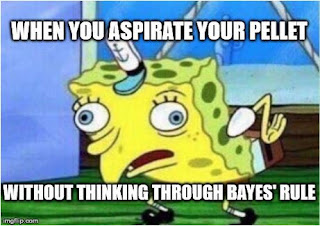Course 20 Best 20
Coming into this semester, I had only taken one Course 20
(thermodynamics) prior and was still unsure whether this was the right major
for me. Biology was my forte in high school, and I love the idea of problem
solving in engineering – naturally, I turned to biological engineering as the
answer. However, what I didn’t know after I officially declared my major was
that Course 20 included a wide variety of topics. What initially popped into my
head was more biomedical engineering, including medical devices.
This semester, I received a taste of the huge possibilities
within biological engineering thorugh 20.109. I loved how the class was structured
with three different modules concentrating on very disparate topics: from protein-ligand
binding to gene expression to building batteries from phages. It fascinated me
to learn about each module because I felt like it was another taste of biological
engineering. Using small-molecular microarrays served as a high throughput
method to search for ligands that bind to certain proteins, and this was a version
of biological engineering because it incorporated the high throughput
capabilities that many problem solvers apply. In addition, measuring gene
expression through computational R code blew my mind up. It was absolutely
humbling how powerful the GO analysis and other computational methods were.
Finally, this past module has been so fun. I really enjoyed learning about
phages and their inherent properties. Little did I know that making batteries
from phages was let alone a possibility, and the creativity behind applying
biological materials towards a battery kept me on the edge of my seat at every
lecture. Being a biological engineer has changed in meaning to me. It is no
longer a set career path, yet it is a constant state of being. A biological
engineer is someone who synthesizes technology and biological substances to
target a biological problem. I am confident that Course 20 is the best major
for me, and I cannot wait for the next couple years as a budding biological engineer.


Comments
Post a Comment